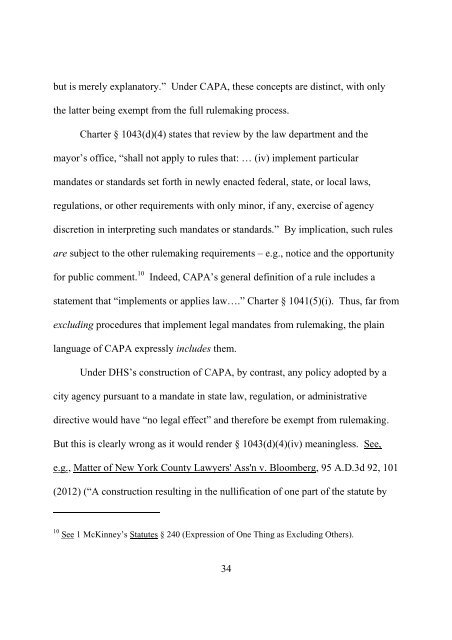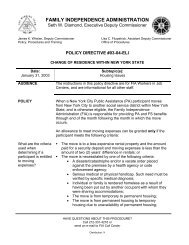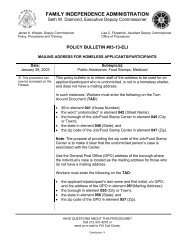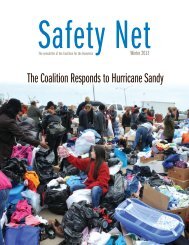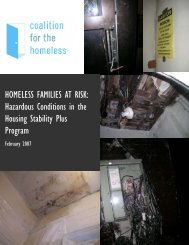New York Supreme Court
New York Supreme Court
New York Supreme Court
Create successful ePaper yourself
Turn your PDF publications into a flip-book with our unique Google optimized e-Paper software.
ut is merely explanatory.” Under CAPA, these concepts are distinct, with only<br />
the latter being exempt from the full rulemaking process.<br />
Charter § 1043(d)(4) states that review by the law department and the<br />
mayor’s office, “shall not apply to rules that: … (iv) implement particular<br />
mandates or standards set forth in newly enacted federal, state, or local laws,<br />
regulations, or other requirements with only minor, if any, exercise of agency<br />
discretion in interpreting such mandates or standards.” By implication, such rules<br />
are subject to the other rulemaking requirements – e.g., notice and the opportunity<br />
for public comment. 10<br />
Indeed, CAPA’s general definition of a rule includes a<br />
statement that “implements or applies law….” Charter § 1041(5)(i). Thus, far from<br />
excluding procedures that implement legal mandates from rulemaking, the plain<br />
language of CAPA expressly includes them.<br />
Under DHS’s construction of CAPA, by contrast, any policy adopted by a<br />
city agency pursuant to a mandate in state law, regulation, or administrative<br />
directive would have “no legal effect” and therefore be exempt from rulemaking.<br />
But this is clearly wrong as it would render § 1043(d)(4)(iv) meaningless. See,<br />
e.g., Matter of <strong>New</strong> <strong>York</strong> County Lawyers' Ass'n v. Bloomberg, 95 A.D.3d 92, 101<br />
(2012) (“A construction resulting in the nullification of one part of the statute by<br />
10 See 1 McKinney’s Statutes § 240 (Expression of One Thing as Excluding Others).<br />
34


